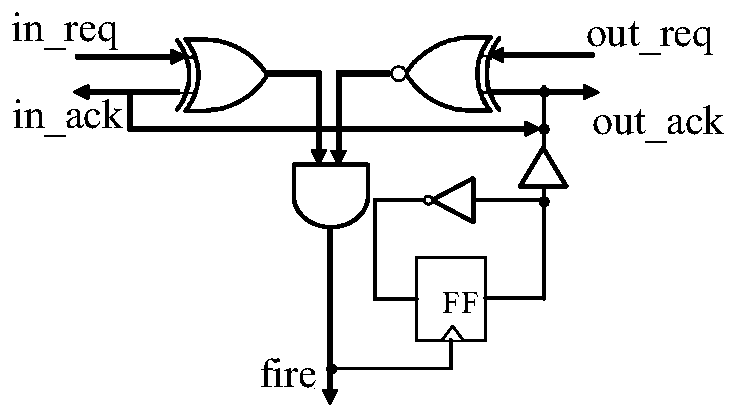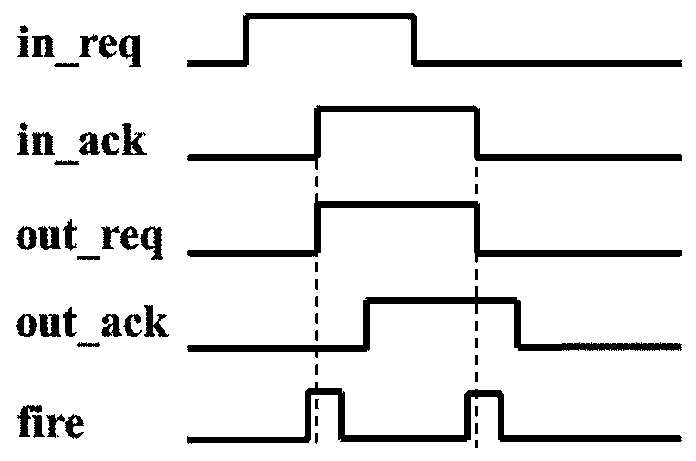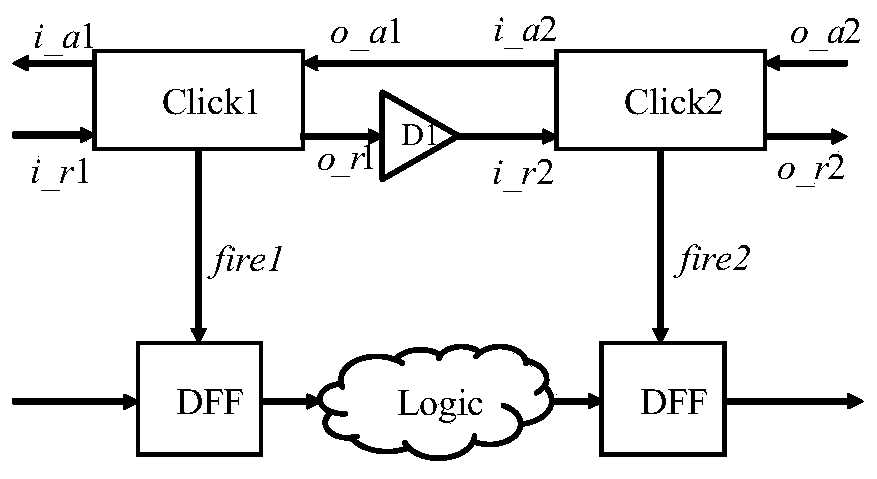A method of converting a synchronization circuit into an asynchronous circuit
A technology of asynchronous circuits and synchronous circuits, applied in the direction of electrical digital data processing, special data processing applications, instruments, etc., can solve the problems of raising the threshold of asynchronous circuits, asynchronous circuits do not have a global clock, and support asynchronous circuit design, so as to reduce the difficulty Effect
- Summary
- Abstract
- Description
- Claims
- Application Information
AI Technical Summary
Problems solved by technology
Method used
Image
Examples
Embodiment Construction
[0034] The implementation of the present invention will be described in detail below in conjunction with the drawings and examples.
[0035] The circuit diagram of the Click unit is shown in figure 1 Shown:
[0036] It can be seen that the Click unit contains a D flip-flop, and there is a loop in the circuit, so it is not a combinational logic circuit. If such a circuit only describes its logical relationship through Verilog, it is impossible to synthesize the desired circuit through DC tools. Therefore, it is necessary to solve this problem by instantiating the Click unit directly. Table 1 shows the netlist for the instantiation of the Click unit. The instantiated Click unit needs to use commands to prevent it from being changed during synthesis.
[0037] Table 1 Click netlist
[0038]
[0039] The waveform diagram of the Click unit is as follows figure 2 shown. The Click unit adopts a two-phase handshake protocol, that is, each flip of the request signal represent...
PUM
 Login to View More
Login to View More Abstract
Description
Claims
Application Information
 Login to View More
Login to View More - R&D
- Intellectual Property
- Life Sciences
- Materials
- Tech Scout
- Unparalleled Data Quality
- Higher Quality Content
- 60% Fewer Hallucinations
Browse by: Latest US Patents, China's latest patents, Technical Efficacy Thesaurus, Application Domain, Technology Topic, Popular Technical Reports.
© 2025 PatSnap. All rights reserved.Legal|Privacy policy|Modern Slavery Act Transparency Statement|Sitemap|About US| Contact US: help@patsnap.com



